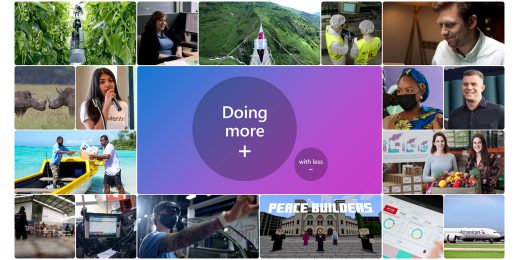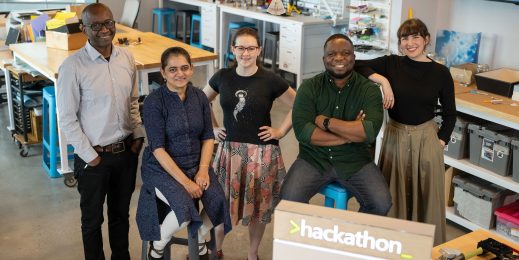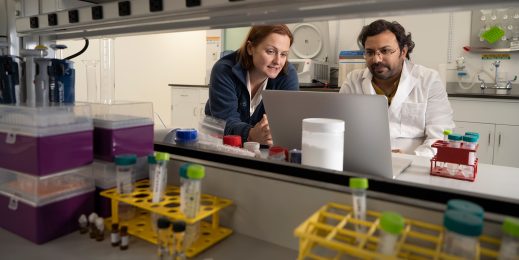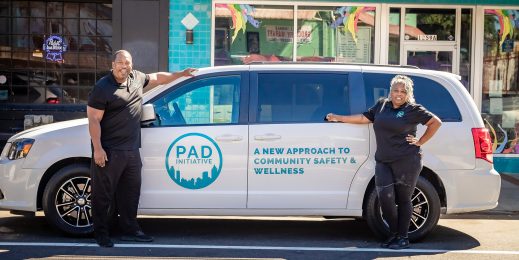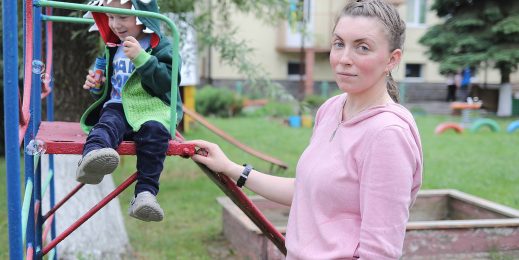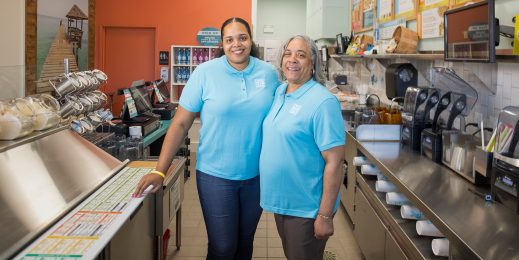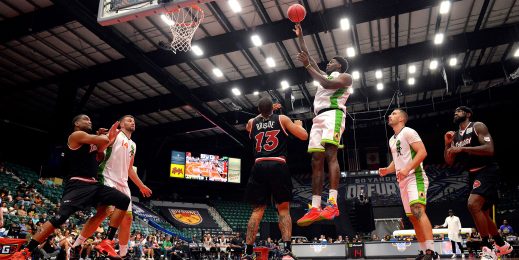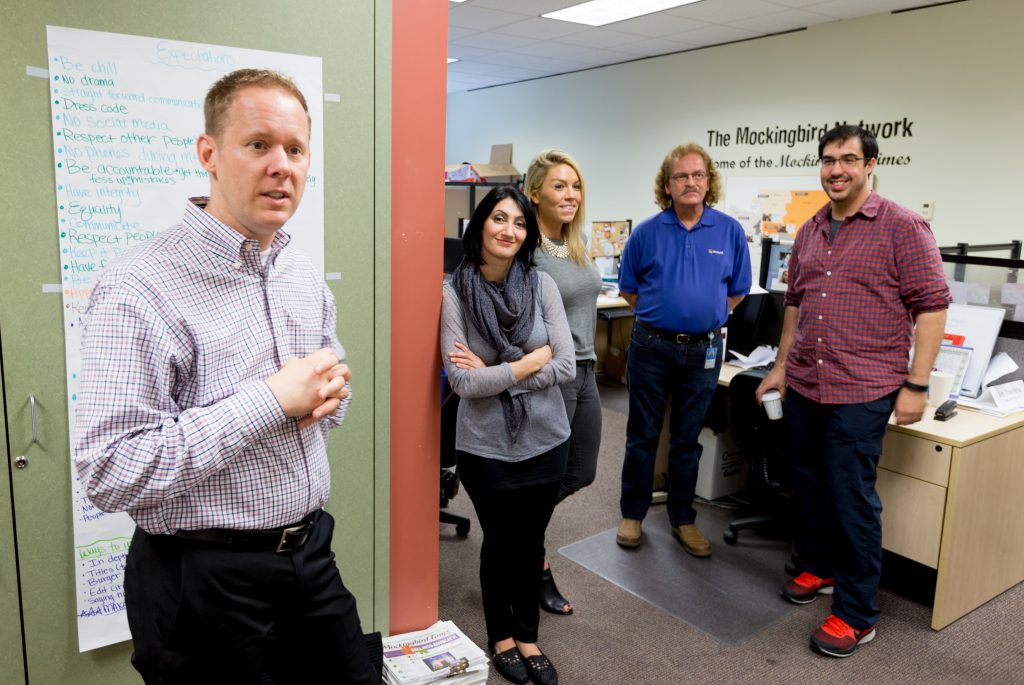
Microsoft employees use tech skills to help address youth homelessness and teach computer literacy
Brian Lawrence focuses on fundraising and strategy as a director at Mockingbird Society, which works to improve foster care and end youth homelessness. But each time network access goes down in their Seattle office, he’s the one trying to troubleshoot and running upstairs to reset servers.
His employees — including young staffers who once lived in foster care or on the streets and now work to advocate for other kids — struggle with outdated software and face various tech hurdles to arrange meetings, install virus protection or sometimes even send a simple email.
But that’s all about to change. A group of Microsoft volunteers has been working to solve the organization’s computing headaches through Microsoft’s Tech Talent for Good program, which brings employees’ skills to nonprofits that need technology expertise and don’t have the means of obtaining it.
“This is work that there’s no way I could have done on my own, or within my team, without the support of the Tech Talent for Good program or Microsoft,” says Lawrence, Mockingbird’s director of development and administration. “It’s going to make us a much more efficient operation.”
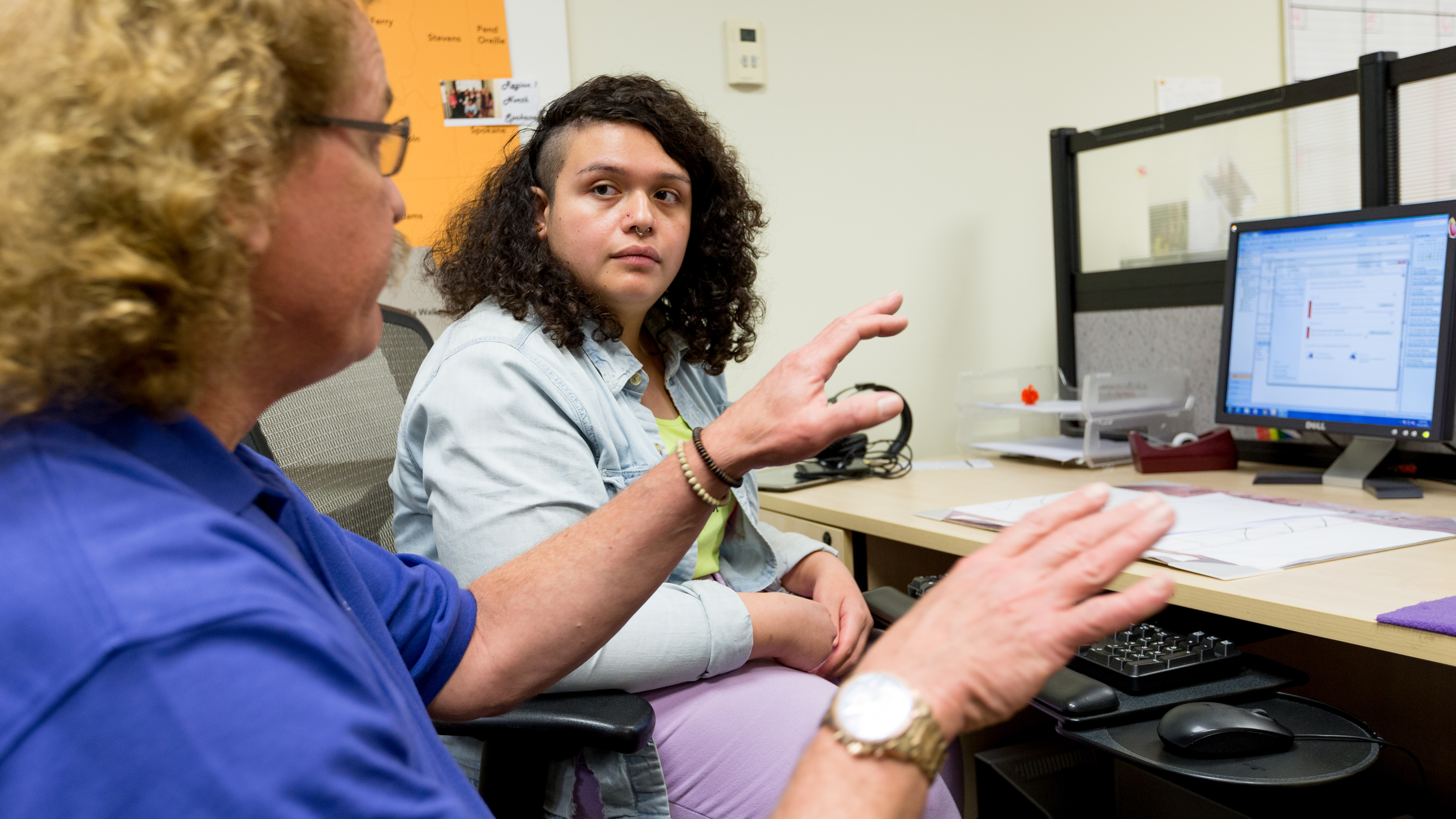
The program is part of Microsoft’s Employee Giving Program, an enormous effort that raised $117 million for nearly 20,000 nonprofits and schools last year alone. It links employees with volunteer opportunities that closely match their skills and has an added bonus for the nonprofits: Microsoft donates $25 for every hour each employee spends on the project.
“Tech Talent for Good connects Microsoft’s greatest asset — the technical talent of our employees —with one of the greatest needs in the nonprofit community,” says Lori Forte Harnick, Microsoft’s general manager of Citizenship and Public Affairs. “Community stakeholders are thrilled when Microsoft employees can help resolve a persistent technical problem or upgrade their IT infrastructure to help them make the most of their time and resources.”
Since the program’s launch earlier this year, Microsoft has partnered with 20 nonprofits in Washington state, helping them tackle a broad range of technical challenges, from creating customer relationship management databases to building a technology strategy to support remote engagement efforts.
“Giving is a cornerstone of Microsoft’s culture. It’s part of our DNA, and as many employees would tell you, a fun part of our jobs!” Harnick says. “We’re constantly looking for new ways to help nonprofit organizations achieve more and make it easy for employees to give their time and talent to the organizations they are passionate about.”
The volunteers’ work at Mockingbird began a few months ago. Jeffrey Harker and Tom Brown went there to evaluate its network, storage, security and other technology. It quickly became clear to the two Microsoft IT program managers that the nonprofit had outgrown the services it was getting from its current IT service provider, Harker says.
Harker and Brown recommended moving Mockingbird’s infrastructure to the cloud, getting the whole organization on Office 365 and making other upgrades that would improve everything from document collaboration to email. Harker says the plan “will provide them with a really good, solid, effective platform for the future,” as well as save the nonprofit “a great deal of money.”
But first, he says, Mockingbird needed a new IT service provider to help address network outages and other hurdles in staffers’ day-to-day work. Finding one may sound simple, but it involves seeking competitive proposals from potential suppliers and negotiating critical details of services and costs in complex contracts.
Mockingbird Society, which has had significant success on a range of homelessness issues, including pushing for legislative changes, didn’t have the expertise or the capacity to manage the procurement process. Anna Ivanov, Rebecca O’Connor and Robert Glesne, who are skilled at handling exactly that sort of effort for Microsoft’s Global Procurement Group, were more than ready to take it on.
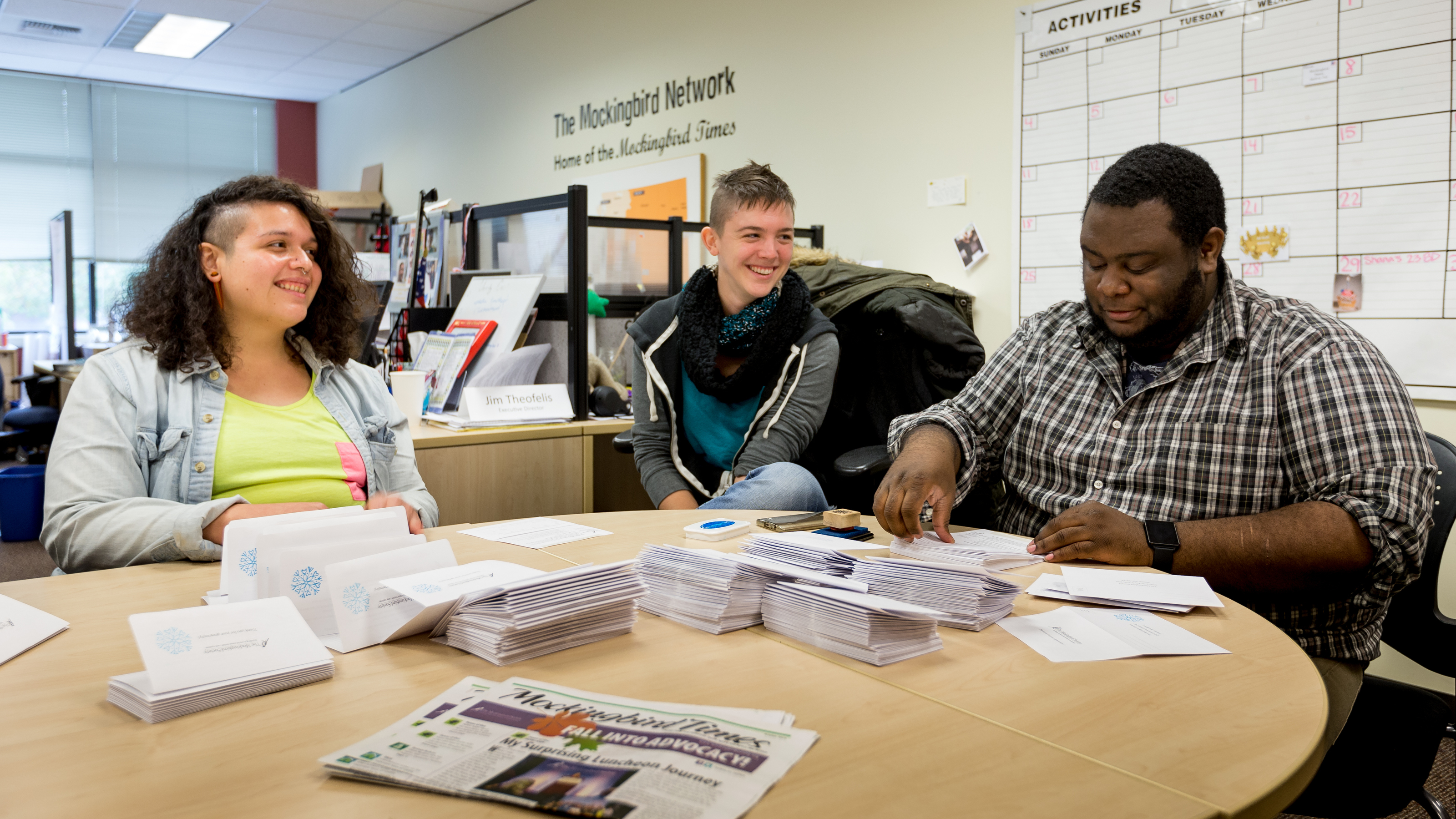
For O’Connor, Mockingbird’s work to advocate for young people — and help them become advocates for themselves — hits close to home. A massive stroke left her mother severely disabled when she was just 11, she says, so her heart goes out to “anybody who had to walk a difficult path as a child.”
“The work that Mockingbird Society is doing out in our community each and every day to help kids who don’t have a voice is absolutely beautiful,” she says. “It inspired me to want to be a part of this organization and donate my time beyond this Microsoft project, because it’s just so important.”
The volunteers sought proposals from different technology services providers, including trusted IT service providers that Microsoft has worked with, and eventually spent a long day interviewing each on what they could offer Mockingbird in what Ivanov calls “the most rewarding day of my entire career.”
“There’s a sense of accomplishment that no paycheck or anything else can give,” she says. “It’s just an extraordinary feeling.”
The team spent weeks comparing the proposals, seeking clarification on minute details and discussing them with Mockingbird staff and, finally, helping to select Allyis Inc. as the best provider for the nonprofit’s IT needs.
Mockingbird’s employees are grateful for the volunteers’ expertise, and they’re looking forward to technology that helps, rather than hinders, their work toward ensuring that kids get the support they need to become healthy, thriving adults.
“I think it’s cool,” says Liz Hernandez, 23, who was homeless last year but is now a Mockingbird Youth Network representative. “It’ll definitely make things a lot more convenient.”
“The project management has been so incredibly strong,” Lawrence says. “Anna and Rebecca have just really kept us on task, and I feel sort of spoiled, from my position. They have done so much of the lifting and have been such great thought partners throughout this whole process.”
Tapping into volunteers’ specialized know-how is what makes Tech Talent for Good so effective. Last year, O’Connor was eager to volunteer for a charity that helps ailing veterans and their families. Her job turned out to be baking cookies, and, as she readily admits, she’s “not a specialist” in doing that. Six dozen cookies: burned.
The experience was “not a win-win” as she’d hoped, she says, and it shows the benefit of matching volunteers’ skills with the kind of help nonprofits need.
“That’s what makes Tech Talent for Good so different from your traditional volunteer models,” she says. “It’s absolutely a win-win.”
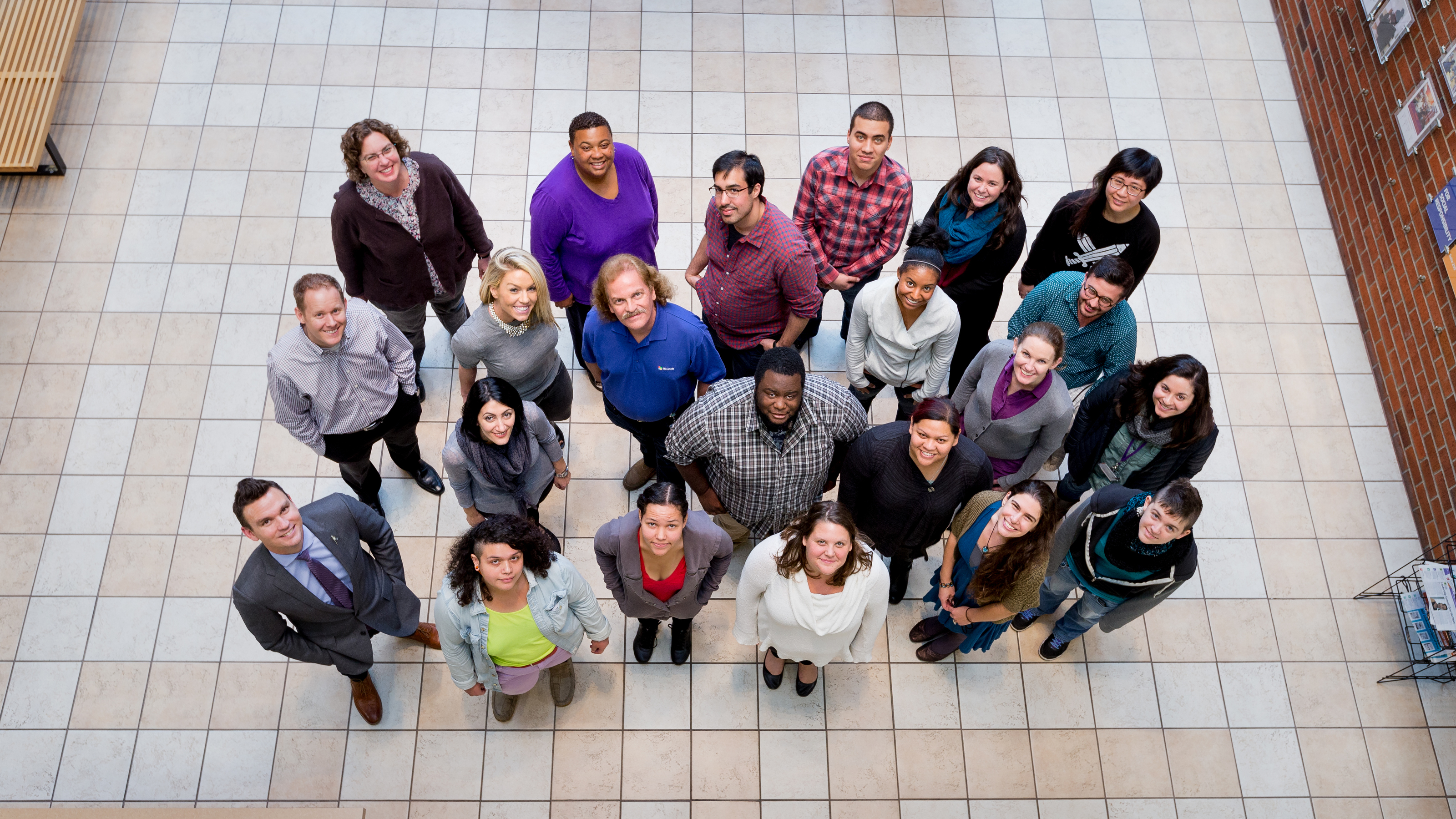
Not far from Mockingbird offices, people attend classes each week through the YWCA of Seattle, King County and Snohomish County to learn computer skills that will help them find work. Some have lived on the streets or served time in jail. Most have simply lost their jobs and suddenly found themselves in need of help getting back on their feet.
Dion Willis and other YWCA job-training instructors once had a presentation from another agency they could show their students on a screen, but it was “absolutely horrible,” Willis says. “It was 15 years old, no updated information. Words were spelled wrong. Diagrams were hard to understand.”
It was so bad they quit using it and tried to teach classes without one, but more structure was needed.
Through Tech Talent for Good, a group of Microsoft volunteers worked to build six new PowerPoint presentations to guide the classes. They included curricula for beginning PC and Outlook classes, as well as beginning and intermediate Microsoft Word and Excel courses.
The work of volunteers Kim Farmer, Upasana Gupta and Lindsay LaFran “made my life way easier,” Willis says. They were “even able to print out a really easy cheat sheet that I could hand out while I was talking. That works wonders.”
Now, he says, he can see a much better understanding of the coursework in his students’ eyes. He can hear it in their questions. He even sees people using the little pencils the class provides to jot down notes, something students never used to do.
“Having this PowerPoint presentation makes it easier for my students to absorb all of the information I’m giving to them and makes sure they can relate it to their internships or job search,” he says.
Nykeesha Davis, a Microsoft human resources associate who led the project at the YWCA, says she was “honored to have an opportunity to help out.”
“We met on almost a weekly basis just to say, ‘Hey, here’s what we’re thinking you need. Help us understand what the current state looks like, and where the gaps are,’” she says. “Once the volunteers put things together, we engaged the YWCA facilitators again to make sure we were getting things right. It was a collective effort throughout the project.”
Yet another Tech Talent for Good program will give kids a chance to learn about sustainable farming and technology — and maybe even develop a taste for nutrition-packed kale at the same time.
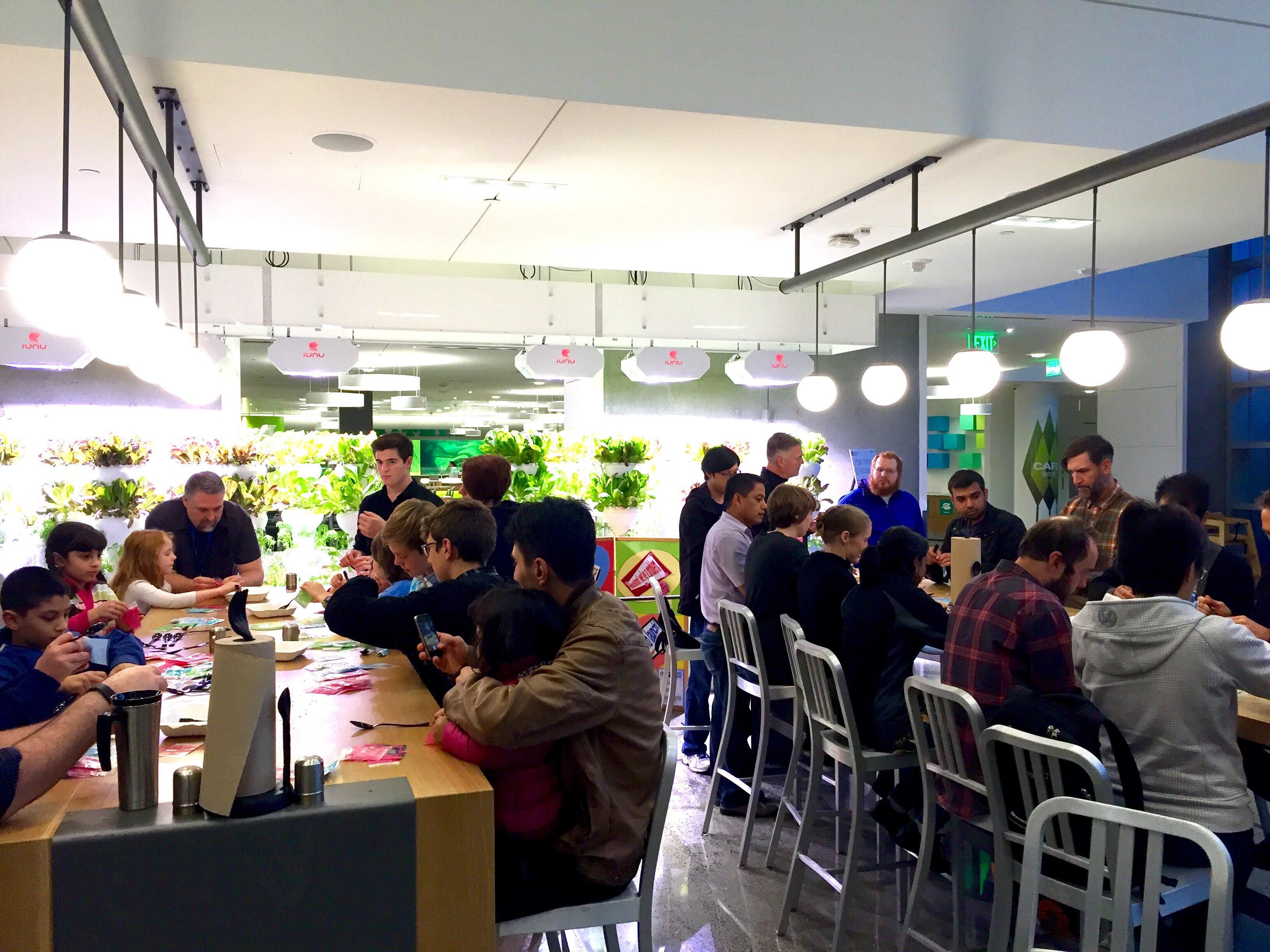
Earlier this month, Microsoft employees and children gathered to build more than 500 simple growing kits, using kale seeds, organic soil and paper coffee cups recycled from around the company. The kids were excited to help and had a lot of questions about everything from how kale grows to how it would taste, says Todd Rawlings, a project leader.
The kits will be given to a school in Bellevue, Washington, where students will plant the seeds. They’ll then use Internet of Things and Azure cloud technology to monitor the plants through sensors as they sprout and grow in a nearby greenhouse. In a few weeks, they’ll likely get the chance to experiment with different recipes to try some of their wholesome harvest.
Rawlings, a senior engineer for Microsoft’s Business Excellence Group, hopes it’s only the beginning.
“We’d love to work with schools all over the world to enable them to teach how to grow crops efficiently, how to grow organic, without any fertilizer or pesticides, and really bring tools into the classrooms that teachers and students have never really had much access to in the past,” he says.
Rawlings, who is cofounder of the Urban Farming chapter of the Microsoft Garage, is working on the project with Maybin Chisebuka, whom many affectionately call “The Kale Man.” Chisebuka taught himself to grow crops on land where others said it couldn’t be done in Africa, where he grew up in poverty and was motivated mainly by hunger.
He further refined his organic, sustainable methods after he came to the U.S.
He hopes exploring the challenges of urban farming will help kids hone their problem-solving skills, as well as nudging the students, especially those in lower-income families, toward nutritious snacks that are inexpensive. And he credits Microsoft volunteers for giving the project a huge boost, providing “a great pool of brainpower” and giving kids even more incentive to participate.
“We’ve designed this project in such way that students will be able to see their impact. They’ll benefit individually as well benefiting others,” he says. “We’re using simple things to create amazing results.”
Lead photo, left to right: Brian Lawrence, director of development and administration at Mockingbird Society, and Microsoft Tech Talent for Good volunteers Anna Ivanov, Rebecca O’Connor, Jeffrey Harker and Robert Glesne. (Photography by Scott Eklund/Red Box Pictures)





